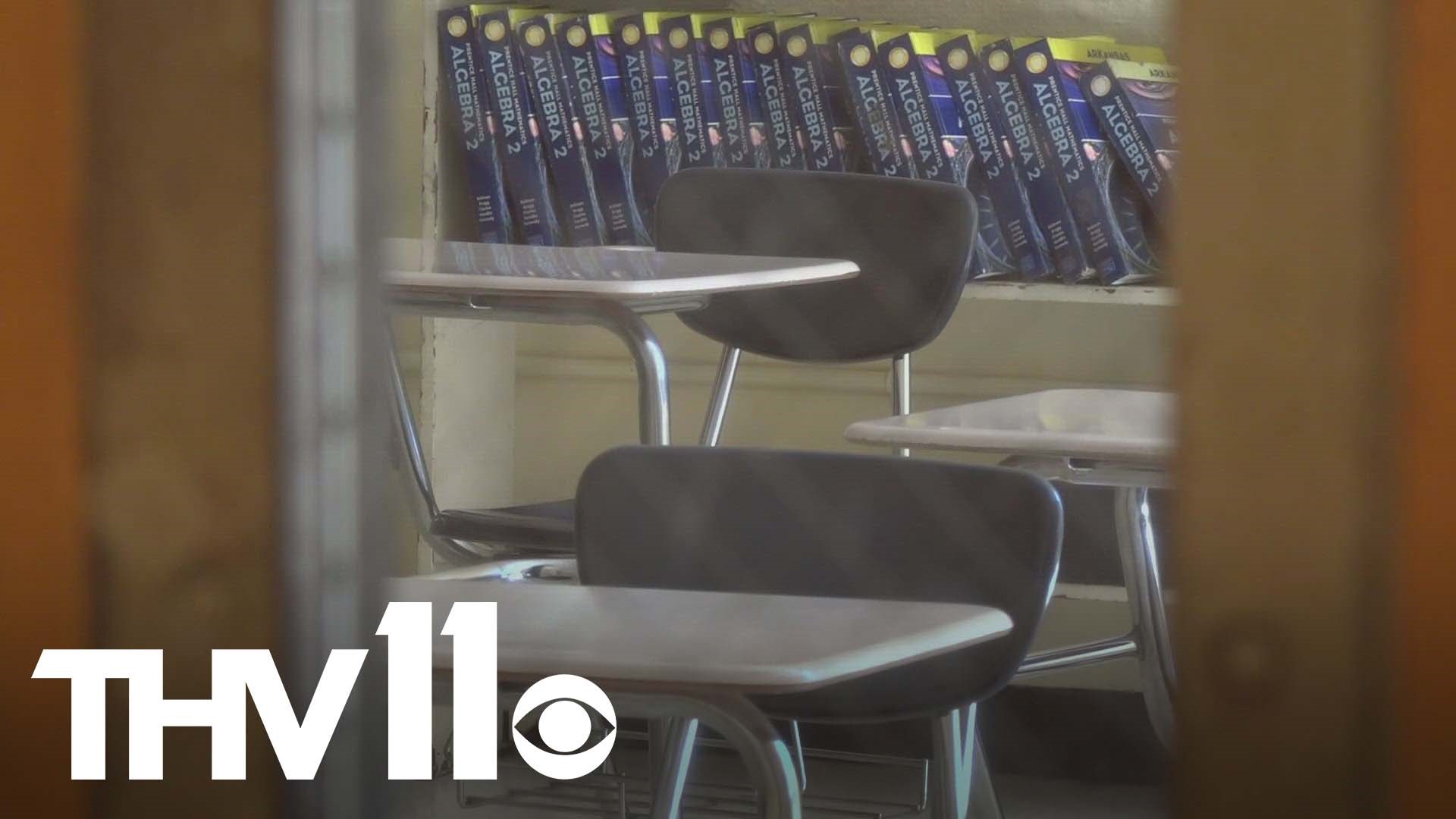PULASKI COUNTY, Ark. — Artificial intelligence in schools is a topic of discussion that is new to many people.
As AI continues to take the world by storm, school districts in Arkansas are working to get ahead of the inevitable, by opening the discussion up to its teachers.
Popular sources of artificial intelligence, such as ChatGPT, have brought up some fears while pushing the limits of what's possible.
The Pulaski County Special School District (PCSSD) is acknowledging both sides of that coin and preparing their teachers for what may come with AI and the classroom.
Many are learning just how much the artificial intelligence chatbot can do
"I couldn't imagine honestly, that in the 2023 school year, a student could tell something to write a three-paragraph essay, and then it would spit that out to them in five seconds," said Kari Owens, a middle school teacher.
Yet, quick automated responses are the essence of ChatGPT. The program, which was rolled out earlier this year, allows users to refine and steer a conversation toward a desired length, format- even style.
"Artificial intelligence used as a partner with humans to build out answers, build and create things,” said Dr. Tyler Tarver, Education Trainer and Speaker. “It's like a virtual Personal Assistant.”
The system has brought just as much interest as it has worries.
"Everybody is either amazed or terrified," Tarver said.
Whether either is true, Dr. Tarver has been training PCSSD teachers on the negatives, positives, and ins and outs of ChatGPT
“It's used best not when it does the work for you. when it helps you do the work better,” Tarver explained.
This training will allow teachers to possibly take their knowledge back to their students.
“My biggest takeaway is that it's going to change education,” Owens added.
Her top concern, along with many teachers, is the chance that students will use these new resources to cheat.
“The first concern is always that the kids are just going to cheat, just going to abuse it, and not ever going to learn how to use it,” Owens explained.
However, Owens realized that cheating has always been a concern, long before AI or ChatGPT came around. So, she sees the solution working in three steps.
First, teachers need to learn how the ChatGPT technology works. Then, they must learn how it can be used and abused. Finally, they can teach students how to use it properly in the classroom
According to Tarver, that final step is necessary.
“If you don't teach them how to use it properly, they're still going to use AI, ChatGPT, or Bard,” Tarver said. “The students are going to use these things to do stuff for them, but they're not going to be as good at it unless you help guide them through that.”
Tarver added that there are benefits to learning the artificial intelligence chatbot, whether teachers choose to integrate it into the classroom or not.
“Whether an educator wants to have it in their class, or never use it at all, they need to understand it,” Tarver said. “That way they can recognize if students are using it, but also let students know whether if it’s ok to use in class or don't ever use this class.”
Another concern amongst teachers is that artificial intelligence could replace them, but Owens sees the system as a tool for teachers rather than a stand-in.
“It can't replace teachers. It's not going to, but it's going to give us our time back,” Owens explained. “That's kind of the biggest gift you can give a teacher.”
Owens added that while she'll be teaching students how to use ChatGPT, she's excited for ChatGPT to help her out as well.
“It's just such a time saver, I can tell it to write a lesson plan, it can do that so much quicker than I can,” Owens said.
While Owens is open to integrating ChatGPT into the classroom in the upcoming school year, she is unsure what the future, even less than a decade, looks like for AI in schools.
“I have no clue, I have no idea, but I do think in five years it's going to be dramatically different stepping into an English classroom, especially,” Owens said.

